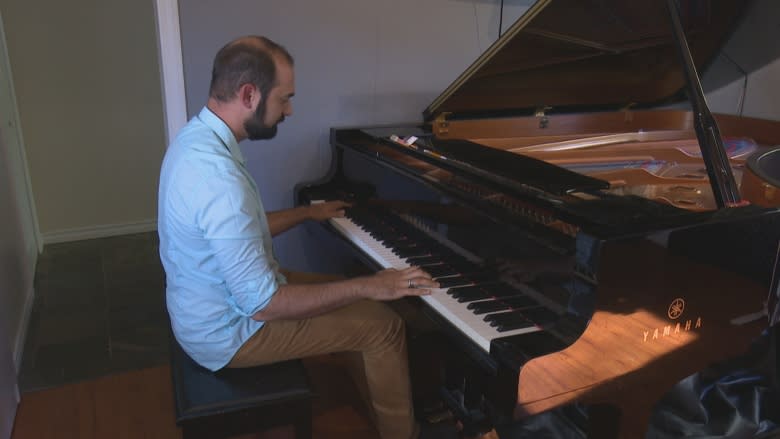Sessional instructor feels 'exploited,' college strike drags on
Amid a college strike with no end in sight, one teacher at St. Clair College is speaking up for the sessional instructors at the center of the dispute who are "poorly paid" and "exploited."
College faculty members have begun their second week on the picket line. It's been eight days since both sides met at the bargaining table with no new talks scheduled. Two key issues remain unresolved — longer contracts for non-full time teachers, and the union asking for a 50/50 balance of part-time and full-time employees.
Right now, 70 per cent of the teaching workforce at Ontario colleges are part-time or sessional faculty.
Michael Karloff falls into that category. He works three-month contracts as a musical theatre teacher at St. Clair College without any benefits or job security. Even with his hours maxed out, Karloff makes about $30,000 a year. A full-time professor doing similar work would make more than $100,000 annually.
Students affected by high number of part-time teachers
It's not all about the money, Karloff said it also affects the students.
"The quality of instruction deteriorates because I'm not available for the students when I'm working [at my other jobs]," said Karloff. "The quality of instruction drops as you can't get good people to take these jobs because really, there's no incentive to."
At times, Karloff works more than four jobs at a time to make ends meet for his family. He also teaches at the University of Windsor, Wayne State University, tutors at Walkerville Collegiate Institute and performs with the Windsor Symphony Orchestra, among other roles.
"To be perfectly honest, I can't pay the bills unless I teach at all of those places all at the same time," said Karloff.
Despite his concerns, he says there's value to having sessional instructors, especially those who have specialized industry experience. But Karloff said when 70 per cent of the department is made up of these teachers, "you water down the departments terribly."
Union demands would cost $250M: college council
Implementing the union's demands means $250 million in extra costs, according to a spokesperson with the College Employer Council.
But the union continues to push for equal pay for equal work. Union chair of the college faculty bargaining team, JP Hornick, said the council has made it impossible to bargain by refusing to engage in discussions.
"Until council is ready to move or until the government begins to put pressure on council to have them back to the table and engage in these discussions, I think unfortunately we're going to be in the same place as we are now," said Hornick.
The provincial government is urging both sides to return to the bargaining table. Advanced Education Minister Deb Matthews told CBC News in an email that previous college strikes have not led to students losing their semester.
"I would like to emphasize that students, domestic and international, are the top priority for our government, and we know they have real concerns about the impact a potential strike may have on their education," Matthews said.
"While the government has no direct involvement in the collective bargaining process, we are committed to doing everything we can to connect students to the resources they need to stay informed."
— With files from Meg Roberts



